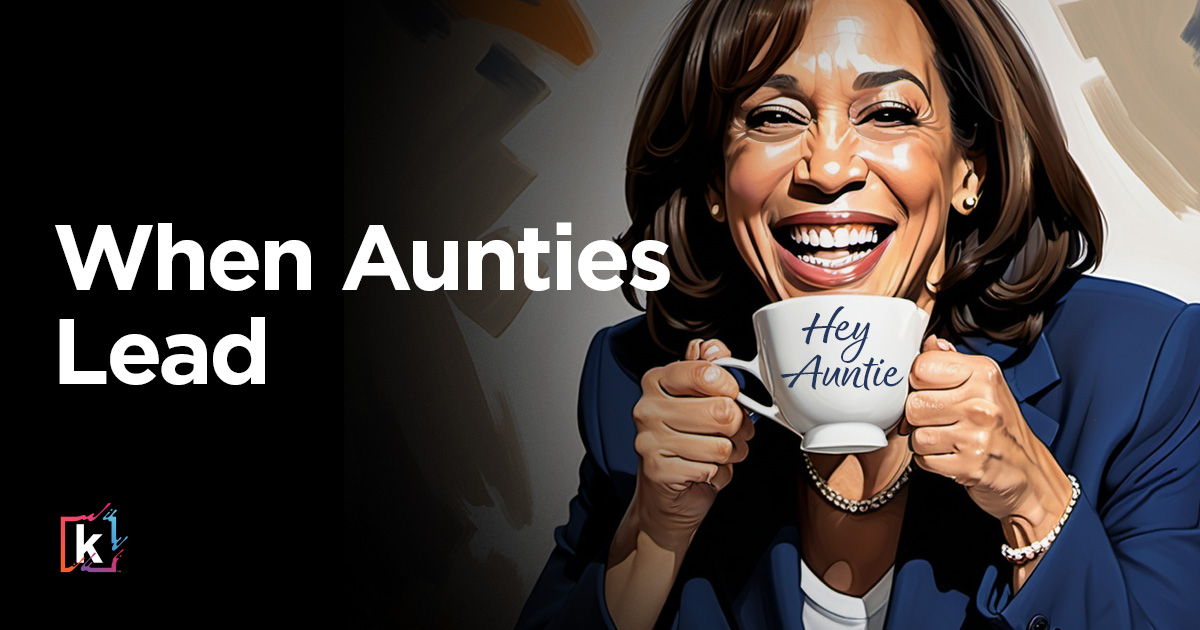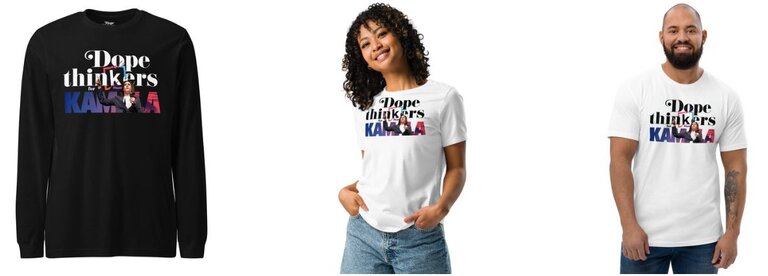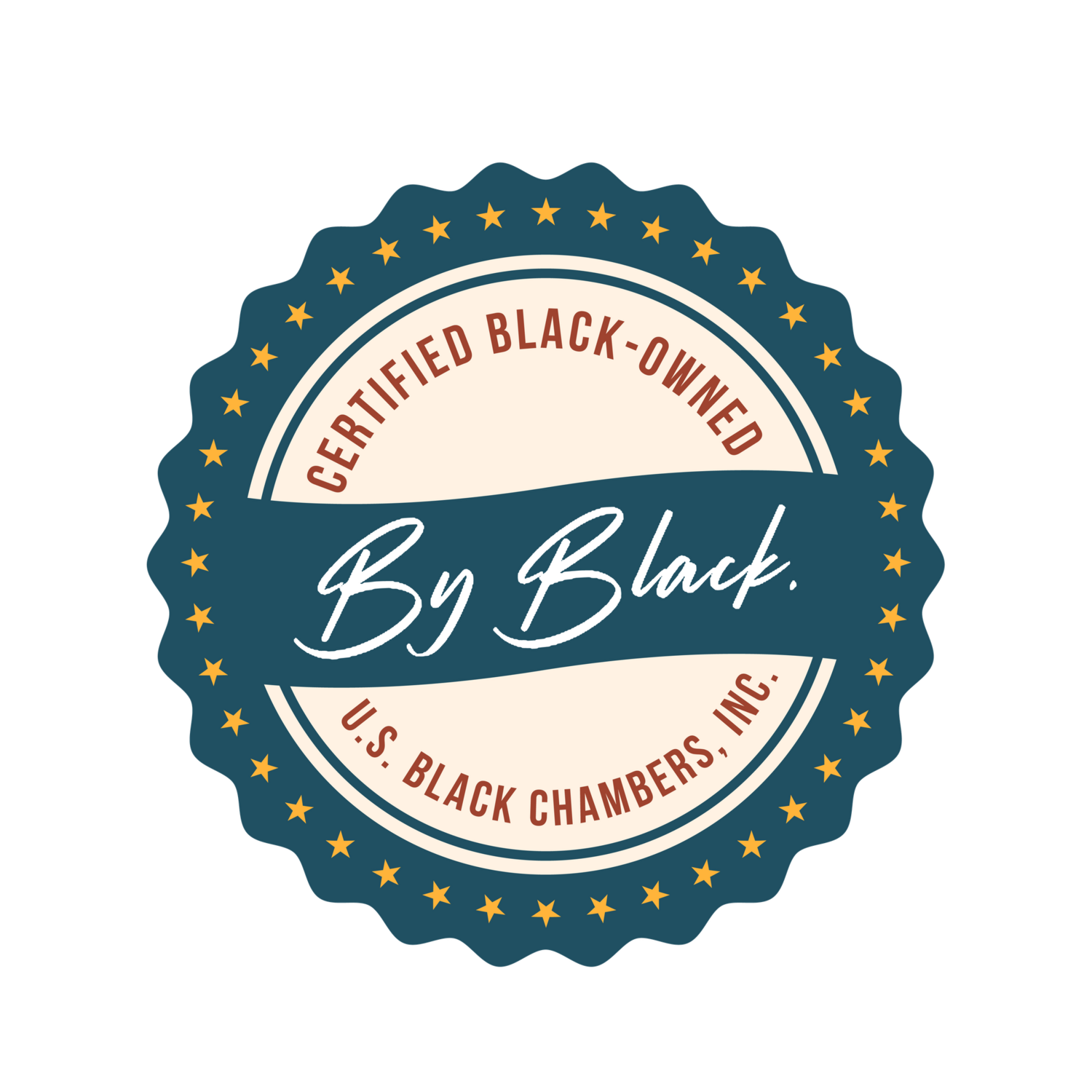When Aunties Lead

Every morning, I get a good morning GIF text from my aunt. I don’t know who creates them, but they’re a little corny and badly designed. However, they always have a message of love, affirmation, and motivation. Sometimes they may come with a scripture or a “check-in” to see how I’m doing.
If you are not blessed to receive Auntie GIFs, I hope one day you do. If you have a diverse group of contacts, you probably know someone who does get these daily messages.
The aunt who sends these to me shares no DNA. We do not attend the same family reunions. We don’t even live in the same state or speak every day. My aunt is my mother’s friend. Her kids are considered my cousins. She has loved me and provided guidance for as long as I can remember.
My experience is not singular. I’ve seen Black people from America, Africa, and Caribbean islands share laughs over these messages. Not only are they a humorous common experience, but they also illustrate the commonality and value of the Black auntie.

Our “Aunts,” “Aunties,” “TT’s,” and “Tees” are women who may be childless or have children of their own. They are stakeholders in our success or the success of our kids. They may help us raise our children, act as babysitters, give rides, give our kids a call every once in a while, monitor their social media, or be available for advice. They attend sports events. They slide a little spending money. They chide privately, celebrate publicly, and act as surrogate mothers.
Aunties may be accomplished in their careers, holding the “Rich Auntie” title with esteem. They may be the friends or family of parents, kind neighbors, unofficial mentors, church members, or leaders in community organizations. You may even find them working in a cafeteria, admissions office, or financial aid department of an HBCU.
It’s a title less of familial relation, and more of respect, honor, and recognition of community.
We are raised by our aunties. We are shaped by them as role models. We are loved and encouraged by them. We are redirected when we go off course.
Because the nuclear family has never been the only basis for child-rearing for Black people, we know family takes an unending variety of forms that are inherently honored in the terms we use for each other.
Dope thinkers know the value of diversity in what a family can be, the value of the village, and the value of women who hold influence in our lives.
While some lately want to spread a narrative that people without children don’t have a stake in the future of this country, we know intuitively this couldn’t be further from the truth.
When we truly exist in community with others, our children belong to more than just ourselves. Our classmates, friends, former teachers, frat, sorors, and neighbors are all invested in our children’s upbringing, development, and success.
There’s also an intuitive understanding that matriarchal frameworks can be successful because we’ve experienced them in various forms. There’s a strength and wisdom that women possess which only grows with age.
We see these roles in the appreciation of Tabitha Brown’s vulnerability, in the Mayor of New Orleans affectionately called, “Teedy” dancing in the street during parade season, and in the respect we give to “Auntie Maxine” as a voice of strength in the U.S. Congress. We know women do not have to be hidden behind a man if they don’t choose to be. They can be mothers, wives, or none-of-the-above and hold leadership in a multitude of spaces.
Of course, Kamala Harris is an aunt in the traditional American sense. She’s talked about helping to potty train her niece in the evenings when she’d get home from Law School at UC San Francisco while she and her sister lived together. Her great-nieces and nephew took the stage at the DNC to communicate their love and teach us how to say her name correctly.
However, there’s also the cultural role she holds as “Auntie” in the African American and Indian communities. She is a co-parent, leader, and is embraced as a role model.
This is highlighted in a recent video circulating where she offers advice to a young girl, “Never ask for permission to lead.” This is a statement seen at work from Black women throughout history– from Harriet Tubman to Fannie Lou Hamer and Shirley Chisholm. This role is further supported by Harris’s niece, Meena’s clothing line, releasing the “Vice President Aunty” sweatshirt. This proclamation shows Harris is not only an auntie to her own family, but in this cultural context.
This term can be a sticky one, as America can be quick to devalue women who aren’t offering the cookie-cutter sex appeal of youth. We’ve seen Black women like Oprah, Gayle, Ava DuVernay, and Mary J. Blige reject the term “Auntie.” Kamala herself once asked Mindy Kaling not to call her Auntie, however presumably because they only have a 14-year age difference. It can feel limiting in how we express ourselves and make women feel like they’ve been thrown out of the game. However, this rejection can also be off putting to the communities who use it as a term of respect and endearment.
Aunt and Auntie have been reframed in recent years, embraced by women as young as their late 20s and early 30s. Only we decide how we show up in the world as aunties and how the term is defined. We can accept that we have more wisdom to offer. We can blossom in still offering beauty while having much more to offer through experience. We can embrace that we are whole and continuously growing at every age.
There is power in being an auntie and being embraced by communities who use the term. An auntie is the perfect role to take on in leadership. It suggests we see value in the leadership of women. We identify with these women’s core values and their accomplishments. We trust that they have the wisdom to stand in the spaces in which they exist. We may not share DNA, but our experiences connect us. Auntie says in one word, you’re one of us.
Harris’s campaign communicates the same thoughtfulness and hope as an Auntie GIF. We’re receiving a message that someone has our collective well-being in mind. It’s a reminder that we can find commonality in our diversity. It’s an example of being stronger when we seek connection across generations and cultures.
The more we learn about Kamala Harris, the more the term Auntie just makes sense.

